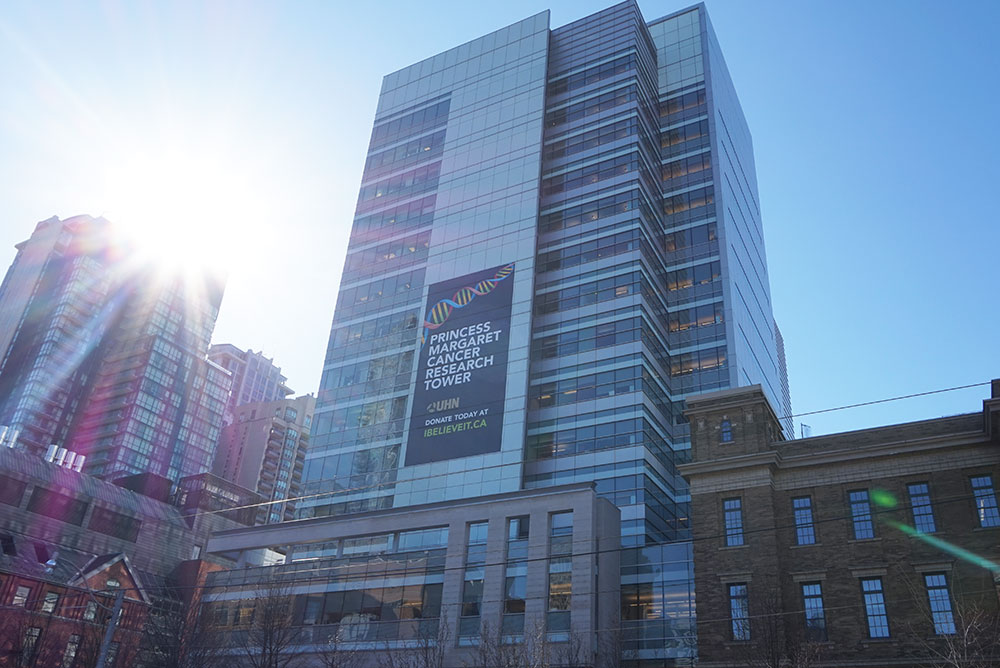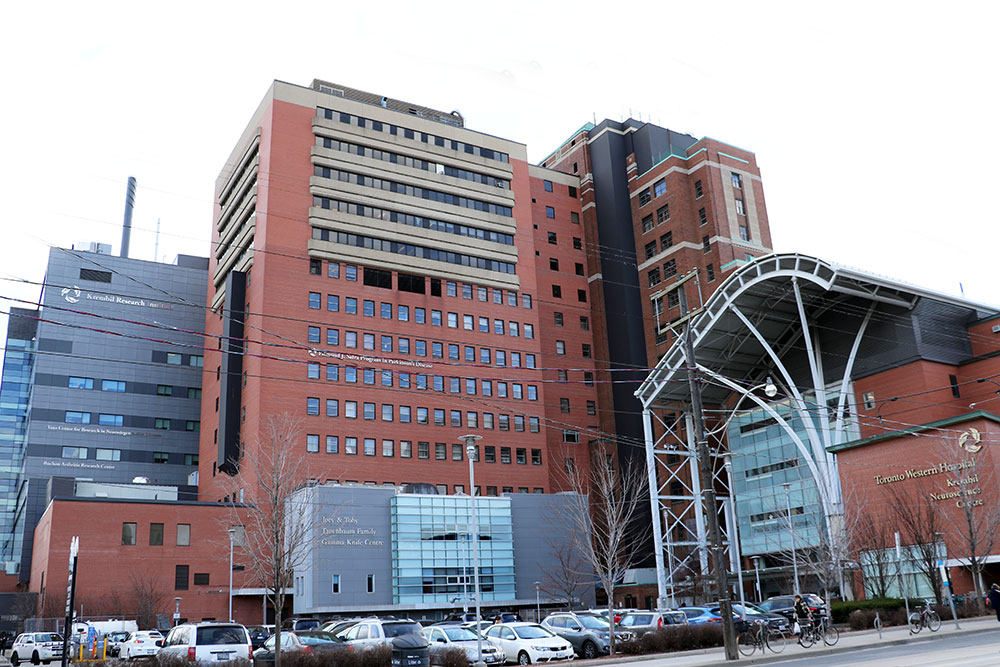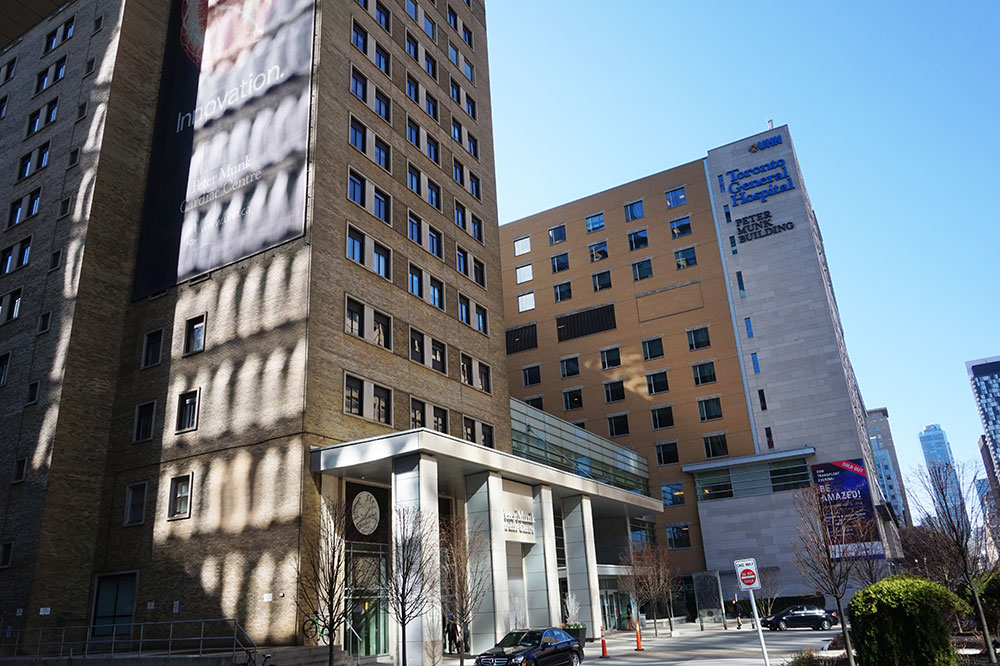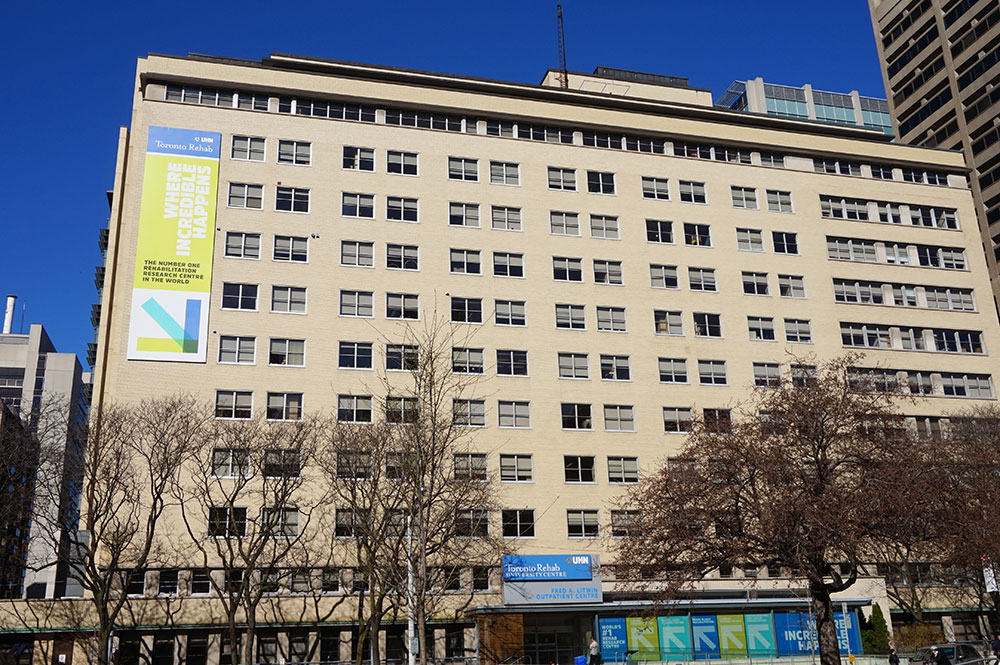Why Choose Toronto?
Toronto is one of the greatest cities for a scientist to train in, and is also an extraordinary place to live. The “Discovery District” sits where the University of Toronto meets Toronto’s world-class research hospitals, including UHN. The high level of health research activity and collaborations with other disciplines creates an unparalleled opportunity for a trainee or postdoctoral researcher to develop and fully realize their potential as a scientist. Within UHN and the neighbouring institutions you can find great patient care partnered with health research and basic science, with an opportunity to attend a seminar and learn something from leading experts every day.
As one of Canada’s largest and most multicultural cities, there is something here for everyone outside the lab, too. A bustling metropolis with galleries, museums, sports teams, and restaurants of every variety, Toronto has a lot to offer, while the natural beauty of Southern and Central Ontario is a short drive away for summer escapes.
Several research institutes and teaching hospitals throughout other areas of the city also consistently produce top-tier scientists and high impact research. As a whole, scientific research in Toronto has had a tremendous impact on our understanding of disease diagnosis and prognosis, and the development of innovative treatments.


Why Choose UHN?
UHN is Canada’s largest hospital network, encompassing four hospital sites with expertise in a number of specialties. Each hospital site is recognized for excellence in distinct areas of specialization, a long and proud history, and a highly committed group of supporters and staff. Rooted in tradition and excellence, UHN plays a leadership role in the transformation of health care.
As it stands, 6 research institutes encompasses UHN and each specializes in different disciplines. With a high level of health research activity and collaborations with other disciplines creates an unparalleled opportunity for a trainee or postdoctoral researcher to develop and fully realize their potential as a scientist. Within UHN you can find great patient care partnered with health research and basic science, with an opportunity to attend a seminar and learn something from leading experts every day.
Research Facilities & UHN Services
UHN is home to an extensive and advanced collection of research facilities and support services that are invaluable to trainees and postdoctoral researchers. These facilities are directed and maintained by highly skilled experts who share their wealth of experience through comprehensive, and often one-on-one, training sessions. Trainees and postdoctoral researchers not only get the chance to work with state-of-the-art equipment, they are also guided in the use of this equipment in the most effective way to address their specific research questions.
FIND A RESEARCHER AT UHN
UHN has over 400 appointed researchers and over 800 clinician-scientists in its five research institutes. With such a rich research environment, many diseases are being studied using a wide range of techniques. It can be challenging to find a particular scientist. A list of UHN researchers with profiles and contact information is available on the UHN Research website here, and current trainees and postdoctoral researchers can search for researchers by name or keyword on the research intranet.
View a list of UHN Researchers with profilesInstitutes & Hospitals
UHN is Canada’s largest research hospital, affiliated with the University of Toronto and a member of the Toronto Academic Health Science Network. Encompassing four hospital sites with expertise in a number of specialties, the scope of research and the complexity of cases treated at UHN have made it a national and international source for discovery, education, and patient care. Each member hospital is recognized for excellence on its own merits in distinct areas of specialization.
- Princess Margaret (PM) Cancer Centre: an international leader in cancer care and research
- Toronto General Hospital (TGH): specializing in cardiovascular sciences, transplantation, and advanced medicine and surgery
- Toronto Western Hospital (TWH): the home of world-class programs in neural and sensory sciences, musculoskeletal health and arthritis, and community and population health
- Toronto Rehabilitation Institute (TRI): integrating innovative patient care, ground breaking research and diverse education to build healthier communities and advance the role of rehabilitation in the health system.
Research across UHN’s seven research institutes spans the full spectrum of diseases and disciplines, including cancer, cardiovascular sciences, transplantation, neural and sensory sciences, musculoskeletal health, rehabilitation sciences, and community and population health. UHN also spans the spectrum from basic research through translational and clinical research. UHN’s seven research institutes are:
Krembil Research Institute
The Krembil Research Institute (Krembil), formerly the Toronto Western Research Institute (TWRI), is the research arm of the Toronto Western Hospital. The overall goal of Krembil’s research program is to develop innovative treatments for chronic debilitating conditions that include chronic neurological disorders, ophthalmologic disorders, and musculoskeletal system disorders. Krembil’s laboratories are located in the Toronto Western Hospital and the Krembil Discovery Tower.


Princess Margaret Cancer Centre
The largest integrated cancer research, teaching, and treatment centre in Canada, Princess Margaret (PM) includes internationally recognized researchers, cutting-edge research infrastructure and the Campbell Family Institute for Breast Cancer Research. PM focuses on cancer research across various fields including genomics, informatics, molecular biology, signalling, structural biology, health services, and biophysics. PM’s laboratories and facilities are primarily located at 610 University Avenue and at the Princess Margaret Cancer Research Tower (101 College St).
Toronto General Hospital Research Institute (TGHRI)
TGH is well known for its excellent clinical care, made possible by ground-breaking research efforts developing surgical and medical innovations. TGHRI focuses on multidisciplinary research that reflects and supports the medical programs of the hospital. Researchers from TGHRI are leaders in innovative biomedical research: discovering insulin, creating the first cardiac pacemaker, and developing new lung repair techniques, among many other discoveries and breakthroughs.


Toronto Rehabilitation Institute (TRI) / KITE
Toronto Rehabilitation Institute (TRI) is Canada’s largest academic hospital dedicated to adult rehabilitation and complex continuing care. TRI’s research program solves problems in four areas: prevention of disability, restoration of function following injury or illness, enabling independent living at home, and optimization of the rehab system. TRI researchers develop new treatments, helpful products and evidence that guides changes to policy and public opinion. TRI’s research laboratories are located at four sites: University Centre, Lyndhurst Hospital and TRI Cardiac and Stroke Centre, and the Bickle Centre. The centrepiece of TRI’s research facilities is the iDAPT Centre for Rehabilitation Research (iDAPT), a unique space where ideas can be cultivated and tested in realistic settings. The iDAPT Centre includes the Challenging Environment Assessment Laboratory (CEAL), a group of biomechanics and simulation laboratories.
McEwen Stem Cell Institute
The McEwen Stem Cell Institute (McEwen) is a newly established research institute at UHN that will focus on developing novel stem cell-based therapies to treat diseases with current unmet clinical need. The institute will be built by recruiting Scientists with expertise in human stem cell biology and genome engineering, dedicated to translating research in basic science to new therapeutic applications. McEwen will function in partnership with UHN clinical and research programs, as well as biotechnology and pharmaceutical companies to achieve these goals.
The McEwen will focus initially on four disease programs:
- Heart
- Diabetes
- Liver
- Blood
The Institute for Education Research at UHN (TIER)
For our healthcare system to adapt to the needs of the 21st century and continually advance care, we must imagine, design and implement bold new ways of educating the healthcare workforce. This is the driving force behind The Institute for Education Research at UHN (TIER).
TIER is one of seven institutes within the UHN Research family. Through the adoption of a unique research model, TIER welcomes researchers and partners from across the healthcare continuum and the university and college sectors, to provide a fulsome view on healthcare education. As a hub for experts to come together, incubate ideas and leverage expertise, TIER is shining a light on an under-researched field to develop the future of Canada’s healthcare professionals.
Our research is focused on:
Teaching, Learning and Practice: Exploring how to optimize learning in the professions using cognitive psychology, education science and social science perspectives.
Societies, Systems and Structures: Exploring how the organizational and social structures of health professional education and clinical settings impact education practice and theory.
Technology, Innovation and Simulation: Exploring how innovations in technology, including simulation and artificial intelligence, change the learning and practice experiences of health professionals.


